The word ‘stringent’ is often used to describe rules, laws, or conditions that are strict, precise, and rigid. It conveys a sense of severity and uncompromising standards. Understanding the antonyms of ‘stringent’ not only broadens our vocabulary but also enables us to communicate more effectively by expressing contrasting ideas. Exploring the antonyms of this word reveals a variety of meanings associated with leniency, flexibility, and relaxation. These antonyms are useful in many contexts such as legal, educational, or everyday conversations.
Meaning of Stringent
Before diving into the antonyms, it’s important to clearly understand what ‘stringent’ means. The term is an adjective that generally means:
- Strict or severe in requirements or conditions
- Precise and exacting
- Demanding compliance or adherence without compromise
For example, a company might have stringent safety standards to ensure employee wellbeing, or a government could enforce stringent laws to control pollution.
Why Knowing Antonyms of Stringent Matters
Antonyms serve a crucial role in language by allowing speakers and writers to express the opposite of a concept clearly. In the case of ‘stringent,’ knowing the antonyms helps when you want to describe situations or policies that are more relaxed, easygoing, or permissive. This can be essential when comparing different approaches, styles, or regulations.
Common Antonyms of Stringent
1. Lenient
‘Lenient’ is probably the most common antonym for stringent. It means being permissive, tolerant, or not strict in enforcing rules.
- Example: The teacher was lenient with late assignments, unlike the stringent policy last year.
2. Flexible
‘Flexible’ refers to the ability to adapt to new, different, or changing requirements rather than sticking rigidly to rules.
- Example: The company adopted a flexible work schedule instead of a stringent 9-to-5 policy.
3. Relaxed
‘Relaxed’ means free from tension or strictness, often implying a casual or easygoing attitude.
- Example: The relaxed dress code was a welcome change from the previously stringent one.
4. Permissive
‘Permissive’ describes an attitude or policy that allows or permits a lot of freedom and is not strict.
- Example: The permissive rules in the new regulation contrast sharply with the stringent old ones.
5. Indulgent
‘Indulgent’ means being overly generous or lenient, often allowing behaviors that might otherwise be restricted.
- Example: Parents who are indulgent may not enforce stringent discipline on their children.
6. Easygoing
‘Easygoing’ refers to a relaxed and tolerant approach, especially towards rules or situations.
- Example: The easygoing supervisor was a pleasant contrast to the previously stringent management.
7. Tolerant
‘Tolerant’ implies a willingness to accept or allow differences or behaviors that might not be strictly allowed under stringent standards.
- Example: The tolerant policy allowed for exceptions that a stringent one would not permit.
Contextual Use of Antonyms for Stringent
The choice of antonym depends largely on the context. For example, in legal or official contexts, ‘lenient’ and ‘permissive’ are often used to describe laws or rules that are not as strict as stringent ones. In personal or social situations, words like ‘easygoing’ or ‘relaxed’ fit better to describe attitudes or environments that lack rigidity.
Legal and Official Settings
In laws and policies, ‘stringent’ often refers to strict enforcement or tight restrictions. Antonyms here emphasize softness or flexibility:
- Lenient sentencing in courts
- Permissive licensing regulations
- Flexible workplace policies
Everyday Life and Personality
When talking about personal behavior, attitudes, or social rules, antonyms might include:
- Relaxed dress codes
- Easygoing personality
- Indulgent parenting styles
How to Use Antonyms of Stringent in Sentences
To get a clearer grasp, here are examples of how these antonyms can be used effectively:
- The school’s stringent attendance policy was replaced with a more lenient approach this year.
- Our office has a flexible schedule, which contrasts with the stringent 9-to-5 system elsewhere.
- Unlike the relaxed rules at the community center, the gym enforces stringent health guidelines.
- Her permissive attitude towards deadlines sometimes frustrated colleagues used to stringent standards.
- The indulgent coach allowed players to skip practice, a stark difference from his stringent predecessor.
- He is easygoing about workplace rules, which contrasts with the stringent nature of his manager.
- The tolerant policy towards dress code made the office environment more comfortable than the previously stringent one.
Summary
Understanding the antonyms of the word ‘stringent’ enriches vocabulary and improves communication by enabling clear contrasts. Words such as lenient, flexible, relaxed, permissive, indulgent, easygoing, and tolerant provide a spectrum of meanings that oppose the strict and severe nature of stringent. Depending on the context, choosing the right antonym can convey the appropriate level of leniency, adaptability, or tolerance, helping speakers and writers express themselves more precisely and effectively.
